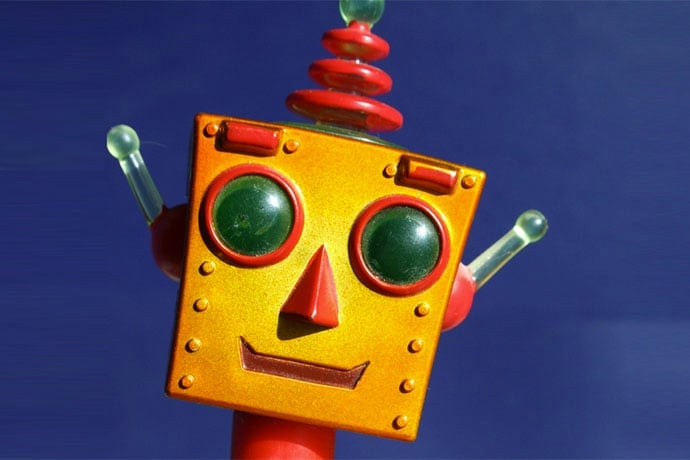The quest to add intelligence to objects we create — also known as Artificial Intelligence or AI — goes back to ancient China, Egypt, and Greece, as well as Renaissance Europe and the Ottoman Empire.
AI is a mix of robots, expert systems, logic, and intelligent software that mimic human behavior to do useful tasks and help guide humans. While our tools today are more sophisticated, people have thought a long time about what it means to create human intelligence in a machine.
In the past, artificial intelligence evolved along a number of paths:
- Automatons are non-electronic machines that move, often in ways we think of as human or animal behaviors. Ancient automatons followed a clearly defined rules using basic conditional logic to perform tasks. Examples from the ancient world range from door openers mentioned in Homer to a human-like automaton Yen Shi reportedly showed to King Mu in China around 1000 BC which worked so well he had to break apart his invention to prove a human was not inside.
- Calculators did basic math useful in astronomy and other activities. The Antikythera found on a shipwreck in 1900-1901 is the earliest known analog computer, dating back to 200-150 BC, and used to calculate the positions of stars and planets, as well as dates of the original Olympic Games. Calculators are critical to the history of artificial intelligence because the need to create accurate tables of pre-calculated values led to the Analytic Engine, designed by Charles Babbage in the 1840s, which inspired the earliest computers created in the 1930s and 1940s.
- Data management also is important. The satire, Gulliver’s Travels, published in 1726, mentions The Engine which stores and creates knowledge, an idea which can be traced back to the Arab zairja, devices that generated ideas by mechanical means. Today we call this process brainstorming which may include machines or software to generate and store ideas.
- Concepts such as binary numbers, conditional logic, deductive and inductive reasoning, and more evolved from Aristotle through the work of philosophers, mathematicians, and eventually computer scientists.
The biggest difference between modern and ancient AI? Modern AI includes the ability for computers to make decisions, for example, to learn based on their experiences sorting parts in a bin by trial and error.
Here is a simple timeline from the print magazine version of this story to give you an idea how some of these threads evolved into what we call artificial intelligence, from the ancient world at the top to the modern world at the bottom.

Learn More
Automatons
https://en.wikipedia.org/wiki/Automaton
Antikythera
https://en.wikipedia.org/wiki/Antikythera_mechanism
Syllogism
http://literarydevices.net/syllogism/
https://en.wikipedia.org/wiki/Syllogism
Deductive Reasoning vs Inductive Reasoning
http://www.livescience.com/21569-deduction-vs-induction.html
https://en.wikipedia.org/wiki/Inductive_reasoning
https://en.wikipedia.org/wiki/Deductive_reasoning
Thomas Hobbes
https://en.wikipedia.org/wiki/Thomas_Hobbes
Gottfried Leibniz
https://en.wikipedia.org/wiki/Gottfried_Wilhelm_Leibniz
The Engine
https://en.wikipedia.org/wiki/The_Engine
http://www.computerhistory.org/atchm/gullivers-engine/
Ramon Liull
https://en.wikipedia.org/wiki/Ramon_Llull
Zairja
https://en.wikipedia.org/wiki/Zairja
Gulliver’s Travels
https://en.wikipedia.org/wiki/Gulliver’s_Travels
2000 Years of Computing History
http://www.computerhistory.org/revolution/
http://www.computerhistory.org/revolution/topics
Charles Babbage
https://en.wikipedia.org/wiki/Charles_Babbage
The Difference Engine
https://en.wikipedia.org/wiki/Difference_engine
The Analytical Engine
https://en.wikipedia.org/wiki/Analytical_Engine
Timeline of Artificial Intelligence
https://en.wikipedia.org/wiki/Timeline_of_artificial_intelligence
http://projects.csail.mit.edu/films/aifilms/AIFilms.html
History of Artificial Intelligence
https://en.wikipedia.org/wiki/History_of_artificial_intelligence

